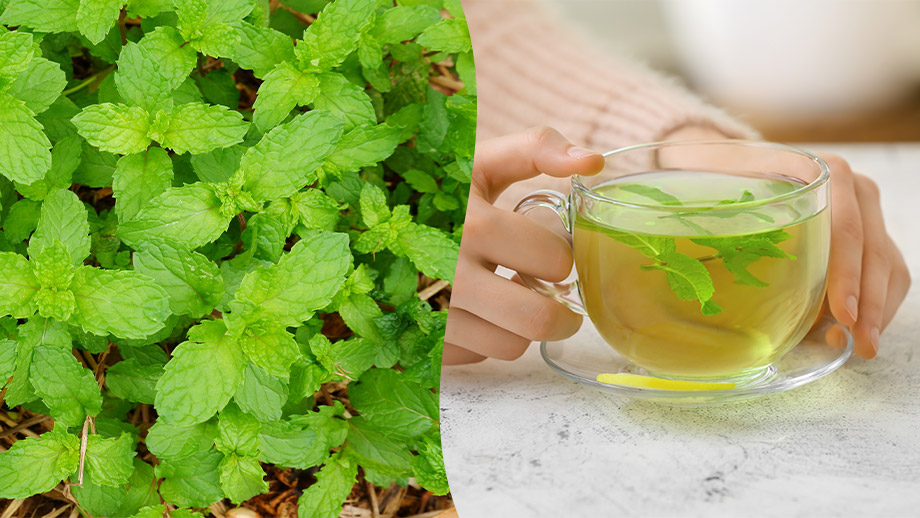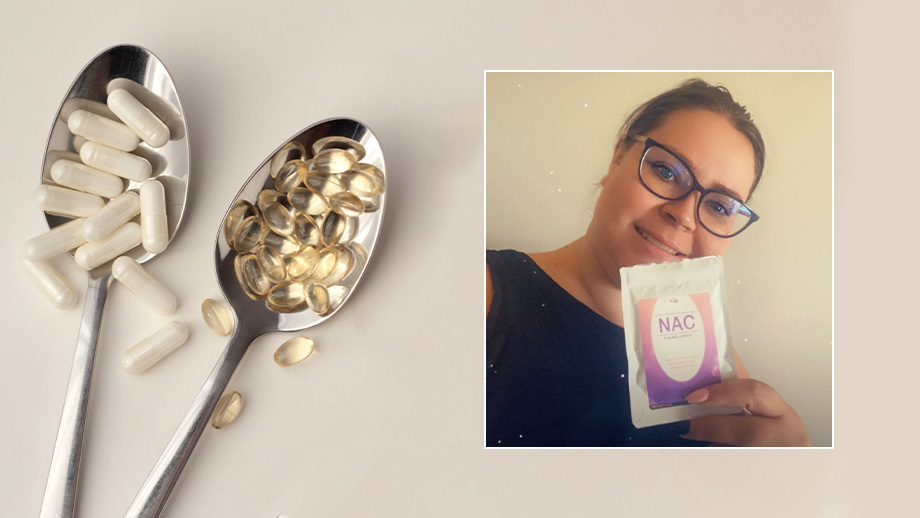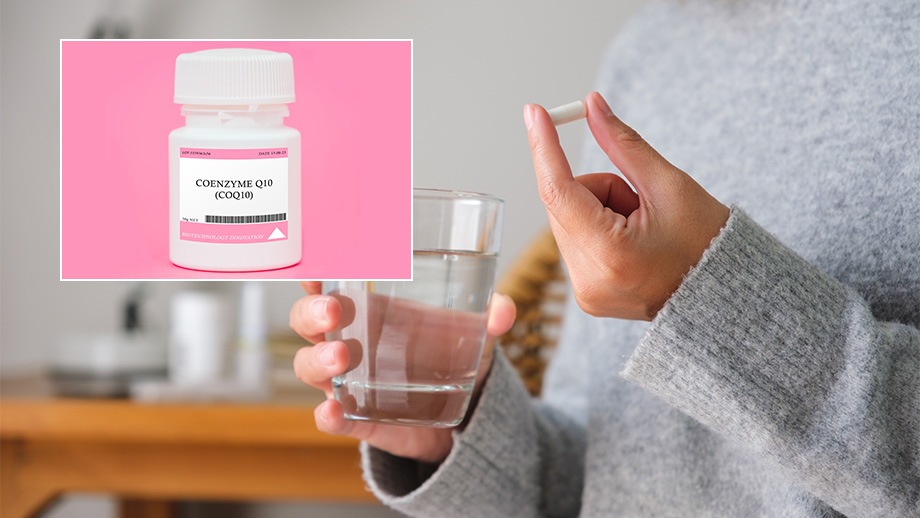If you want to find natural remedies for your PCOS symptoms, certain teas may make great options. While we need more research on spearmint tea for PCOS, it has been shown to improve facial hair growth, inflammation, and brain health. But instead of trusting random sources, let’s look at what the science says.
Today, we’ll look at research studies found in the National Library of Medicine, a peer-reviewed source. And please note these statements have not been evaluated by the Food and Drug Administration. This product is not intended to diagnose, treat, cure, or prevent any disease.
We’ll simply look at what research says and the benefits of spearmint tea. Let’s learn more about this herbal tea.
What Is Spearmint Tea?

Mentha Spicata (Spearmint) Plant
Spearmint is an herbal plant with a minty flavor. You’ll often find it in toothpaste, gum, and candy. It has a much sweeter flavor than peppermint, which contains 40% menthol. However, spearmint only has 0.5% menthol, giving it a milder, subtle flavor. Though both plants are part of the mint family, they have many differences and don’t work in the same ways.
You can make spearmint tea by steeping fresh leaves or dried ones in hot water. You can also find spearmint essential oils, extracts, capsules, and other products. This little plant has a lot of benefits ranging from memory and digestion to hormones. So, let’s look at why spearmint tea may help some aspects of your PCOS.
Why Is Spearmint Tea Good for PCOS?
To understand why spearmint tea can help with symptoms of your PCOS, we need to understand its basic properties. Additionally, it’s important to note that the research is lacking on the benefits of spearmint for PCOS. However, the feedback and research have had positive outcomes.
Inflammation and Antioxidants
Spearmint has many antioxidants that help reduce oxidative stress, including vitamins C, B12, and D. Oxidative stress causes cell damage due to the imbalance of free radicals and antioxidants in the body.
Free radicals are essentially waste from cell function and external environmental factors. They steal electrons from other cells, causing damage and inflammation. Antioxidants share these electrons and stabilize the free radical.
So, to reduce those risks, you can consume antioxidants that neutralize the free radicals that form oxidative stress. Thus, spearmint, having a high amount of antioxidants, can help lower inflammation and the risk of cancer and diabetes that can trigger further issues in PCOS.

Joint Pain Caused by Inflammation
Hirsutism (Excess Hair Growth)
Spearmint tea also has significant anti-androgenic effects. In studies as short as 30 days, spearmint tea significantly decreased free testosterone levels. It also raised luteinizing hormone (LH) and follicle-stimulating hormone (FSH). Researchers say that taking the tea twice a day can help with hirsutism.
While it can quickly lower testosterone levels, resolving hirsutism will take much longer. One study states that due to the relationship between androgen hormones and follicular hair growth and cell turnover time, it may take longer to see results. And these hair growth cycles vary.
Participants noticed a slight improvement in facial hair growth after one month. However, over time, it can reduce hirsutism caused by elevated testosterone.
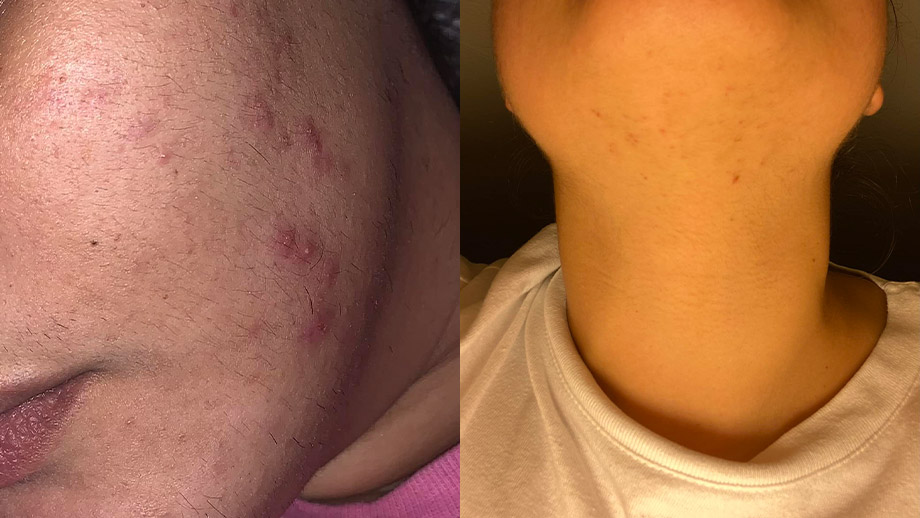
Hirsutism (Excess Hair Growth) in PCOS / Courtesy of The H&B Vitamins’ Facebook Group
Brain Health
Though the studies are limited, especially in human trials, spearmint tea can also help treat symptoms of PCOS, including anxiety, stress, sleep, mood, and memory.
In one study, spearmint improved anxiety factors in rats due to its flavonoids and tannins. In the same way, it improved anxiety and aided in sleep time, suggesting a sedative effect. These compounds can also help improve mood and memory in the brain.
Though more studies are needed, spearmint tea can help improve brain fog, sleep disturbances, and anxiety, commonly associated with PCOS.
How Long Does It Take Spearmint to Lower Testosterone?
How long does it take for spearmint tea to reduce facial hair? Well, this depends on the testosterone levels of PCOS patients and how much tea they consume. Based on the research, spearmint can lower testosterone levels within a month.
However, to start to see physical improvements, it can take more than 6 months. Additionally, the research points to the best improvements in androgen levels when taking two cups a day. And consistency is key.
Peppermint and Spearmint Tea For PCOS: Is There A Difference?
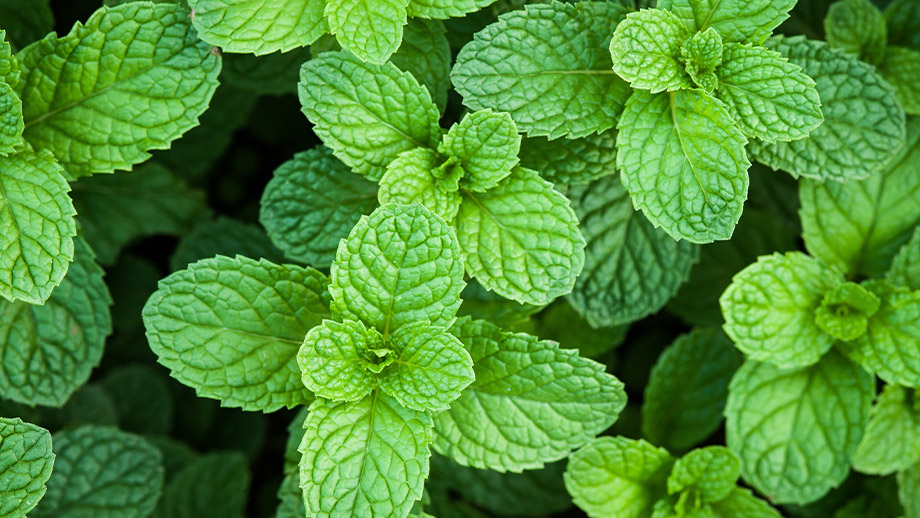
Peppermint Tea Leaves
Peppermint is a cousin of spearmint, but it has many differences. First, it contains 40% menthol, giving it a more spicy or peppery flavor, hence the name. Whereas the sweeter and milder spearmint only contains 0.5% menthol.
Peppermint also contains different chemical compounds and, thus, doesn’t have the same properties and effects as spearmint, especially for PCOS. No studies have found peppermint specifically beneficial for treating aspects of polycystic ovarian syndrome.
Peppermint can ease nausea and upset stomach and ease symptoms of irritable bowel syndrome. In a study including 726 patients, peppermint oil significantly improved symptoms of IBS after two weeks, compared to the placebo.
Additionally, peppermint can help ease headaches, improve blood flow, and reduce fatigue. Some evidence suggests it works as a muscle relaxant and may relieve menstrual pain.
According to one study by the National Institute of Health, “Average pain intensity and duration of pain were significantly lower after intake of Mefenamic Acid and Mint.”
So, while peppermint doesn’t help PCOS symptoms like spearmint, it has some beneficial effects on menstrual pain, headaches, and gastrointestinal issues.
But you can find several other teas that have improved certain PCOS symptoms. For example, green tea has been shown to aid in weight loss, insulin, blood sugars, and testosterone.
According to a study in the National Library of Medicine, ginger can lower LH and FSH levels, testosterone, and insulin resistance. Ginger may also help lower inflammation, cramps, and headaches. Cinnamon can also lower testosterone and insulin resistance, especially when combined with metformin.
You can find many other teas and herbal remedies that can improve different aspects of your PCOS. First, consider your goals and specific factors of your PCOS to determine which tea would be most beneficial.
Spearmint Extract Versus Spearmint Tea
Some people don’t like the taste of spearmint tea, especially every day. In these cases, a spearmint extract capsule can be just as effective.
At Health & Balance Vitamins, you can purchase a package of spearmint extract capsules that contain 150 milligrams. You can take it once a day instead of drinking two cups of tea.
One reviewer said, “I’ve taken this supplement before over the years, but this brand is hands down the best. Significant reduction in symptoms in less than 4 weeks for me. It’s a supplement I know I’ll keep ordering.”
Other reviews mention improved acne, clearer skin, and slowed hair growth when taking the spearmint extract.
When to Drink Spearmint Tea for PCOS and How Much?
You can decide when to drink spearmint tea. However, a cup in the morning and a cup in the evening can work well. Dosage varies considerably among brands as it is not regulated to treat specific conditions.
But according to other sources, you can safely take between 35 and no more than 900 milligrams a day. However, the general consensus is two cups daily for up to 16 weeks.


